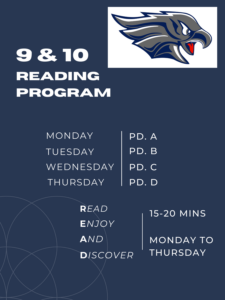January 26th, 2022
Today, the Waterloo Region District School Board (WRDSB) encourages our students, staff, families and community members to participate in Bell Let’s Talk Day, a social media day of action to help end the stigma surrounding mental health and well-being.
Although Bell Let’s Talk Day is a corporate initiative, it provides an important opportunity for us to focus on mental health and well-being. It also reinforces the importance of listening, connecting and reaching out to those we care about.
According to the Canadian Mental Health Association (CMHA), 1 in 5 people in Canada will personally experience a mental health problem or illness, and approximately 20 percent of Canadian youth are affected by a mental illness or disorder.
Since March 2020, our students have had to shift, change, adapt and sacrifice. They have managed to shift from in-person learning, to remote, and back again. During periods of remote learning, students have had to be away from friends and school life. COVID-19 continues to affect our students in ways that we could never have imagined.
This is why talking about mental health and the effects the pandemic is still having on our students, staff, and families is important. It will help open the lines of communication and create the safe space we all need right now. It may also be the glimmer of hope one student needs.
However, we have to remember that not everyone is experiencing the pandemic in the same way.
Already vulnerable and marginalized communities are experiencing a disproportionately negative impact, which has profound mental health implications. The ongoing racism and hate – interpersonal and systemic, both locally and around the world – further contributes to a decrease in overall wellness and has a negative impact on these communities.
That’s why, now more than ever, we need to support and comfort those who are struggling.
Having our students experience a caring learning environment, whether remote or in-person, that addresses their well-being is crucial to their development and sense of belonging. We recognize and appreciate the relationship between student mental health and academic success.
How to participate in #BellLetsTalk
Participating is as simple as tweeting or retweeting on Twitter using the hashtag #BellLetsTalk, watching their official video on Facebook and Instagram, using their Snapchat lens, uploading a TikTok video using the hashtag, or adding their Bell Let’s Talk Facebook frame to your profile picture. In return for any of those actions, Bell will donate 5 cents to support a variety of mental health programs in Canada.
We invite you to follow us on Twitter and join us in the larger conversation.
Together, let’s help end the mental health stigma for our students, friends, loved ones, and everyone else around us.
Sample Tweets
- Today is @Bell_LetsTalk. For each tweet and RT using the #BellLetsTalk hashtag, @Bell will donate 5 cents to #MentalHealth programs in #Canada. What are you waiting for? Join me and @wrdsb to help change the conversation. Let’s #EndTheStigma together. 🗣
- #MentalHealth matters to me and I want to be the change that helps #EndTheStigma with #BellLetsTalk. I am uniting with @wrdsb today.
- I am a person my family and friends can talk to when they need support. #BellLetsTalk
- There is strength in speaking up. Call, text, or virtually meet with a friend, family or trusted person. Even though we may not be physically together, you are not alone. #BellLetsTalk
- Need support? If you or someone you know is struggling with their #MentalHealth, please contact @ConnexOntario, a 24-hour mental health helpline 1-866-531-2600. Or, if support is needed immediately, call 911. You’re not alone. It’s okay to reach out for help! #BellLetsTalk
Family and Student Resources
We understand that many families are looking for support and resources for children who may be struggling with anxiety. The WRDSB has developed a Caregivers Guide to Accessing Support for Students With Anxiety to help.
It can be hard to speak with our children about mental health because it is not always easy to know the right things to say. Check out our online mental health and well-being resources for tips on getting the conversation started and how to access support for your child.
Categories: Home Page



